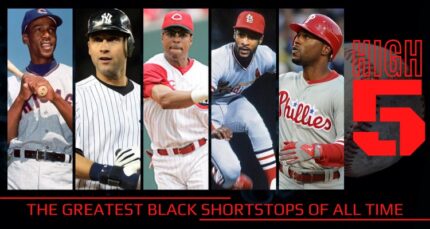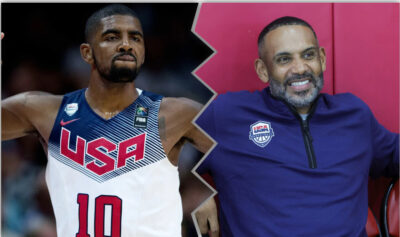Unbeknownst to most, Any Given Sunday was the first step that comedian-turned-actor Jamie Foxx, took on his road to becoming a critically acclaimed, Oscar-winning, leading man. People have either forgotten or aren’t familiar with the fact that, before being featured in Oliver Stone’s pro-football exposé, Foxx’s starring movie roles consisted of B-Comedies galore. Joints such as Booty Call, Held Up and The Players Club were the standard. Needless to say, Stone did for Foxx’s career what Mike Woodson did for JR Smith’s next contract – he helped blow it up.
Starring alongside the legendary Al Pacino, Foxx portrays a young, black, third-string quarterback named Willie Beamen, who has a meteoric rise to fame after the team’s starter and second-string QB both go down with injury. Playing the game with all the talent in the world, a chip on his shoulder and a sense of entitlement in his heart, Beamen manages to become a media darling. All the while, alienating his coach, teammates and his live-in girlfriend (the urban legend, Lela Rochon).
Seeing that his new star player’s head is getting bigger than a growing child spawned by Ne-Yo and Christina Ricci, Coach Tony D’Amato (Pacino), decides to have Beamen over for dinner to get some alone time with his new star QB. He suggests that he become more of a team leader, before he loses himself and his team.
But instead of getting a receptive student of the game, D’Amato learns that he’s coaching a scorned player who’s carried his disdain for the politics of the game in his right pocket.
“It’s bullsh*t because it’s about the money. Raking in the TV contracts, fat-cat boosters sitting in the skyboxes, the coaches trying to up their salaries. And the whole time what you looking for? You looking for the next black stud to take you to the top 10. Get you in a bowl game. It’s the same way in the pros.”
A frustrated and agitated Beamen continues to break down his views on the way racism, or “placism” (great term by the way), has played a role in his aversion to the game. He details how he’s been misused, mistreated, and wronged by his past superiors. He even recalls how he was stereotyped by D’Amato himself.
Mimicking D’Amato’s pep talk earlier in the film, Beamen retorts, “Go out there and play like you’re in the hood and you’re throwing the ball, and your mama is ringing the dinner bell.”
Now, I know this is just a movie, but it really does seem like people automatically assume that great black athletes come from the ghetto. Not the case. Grant Hill, CP3, RG3 – these are extraordinary athletes who came from good homes. Not everyone with a ton of talent has an Allen Iverson backstory. Poverty doesn’t build or harness natural, God-given skills; the character of a man does. Get it right. And anyone who knows anything about the hood knows that dinner bells went out with the fish tank pumps.
When the conversation was said and done, Beamen made his point to D’Amato, and Foxx held his own while sharing the scene with Pacino. While everyone talks about the overrated exchange between DeNiro and Pacino in Heat, I feel the interaction between Foxx and Pacino came across with more realism and authenticity given the situation. An aging coach, who’s losing touch with the younger generation, trying to get through to a young star QB who only plays for himself because the only person he trusts is the man in the mirror. Pacino and Foxx nailed it.
Like he said at the end of his dialogue with the coach: “With the time I got left, I’ma play my way. Get my dollars up…I’ll be worth 10 times what I was worth before I got here.” Three NAACP Image Awards, two Grammys and one Oscar later, Jamie Foxx proved to be worth a lot more than those straight-to-DVD comedy movies he made before Any Given Sunday.



